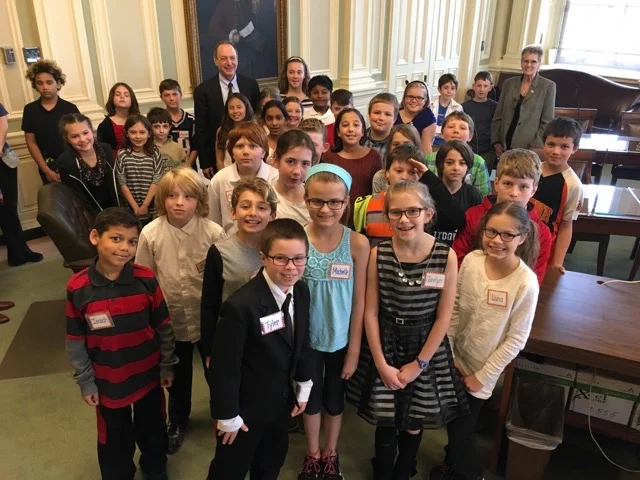Dear Friends,
The end of April newsletter has some upbeat notes. I find that there is much gained from the transfer of state legislation from one chamber to the next. The first chamber establishes a record upon which the second chamber can build, often resulting in clarifying or altering amendments.
One such bill is the Senate’s passage of HB 238, legislation to create a committee to study broadband access to the internet in unserved and underserved areas of the state. The route to passage was unusual. The House Committee recommended its defeat, the full House narrowly approved it but not in the form the author, Rep. Carol Roberts of Wilton had recommended. It came to the Senate Public and Municipal Affairs Committee on which I serve and was recommended to pass 4-1. Senator Ward and I pulled it back from a vote so we could refine the committee’s duties and reporting. Those changes were introduced in a floor amendment this week which passed by unanimous voice vote. This is a big step for the legislature which hasn’t shown much willingness to get involved in disparities in service.
NH Department of Education reorganization plan, which developed quickly via a non-germane amendment, was turned down. What did pass were a couple of amendments: one that establishes a legislative study committee on reorganization and another that requires consultation with the Board of Education and Department Directors in advance.
Commissioner Edelblut and I will be visiting Hinsdale and Fall Mountain district schools in the next few weeks.
Full Day K (kindergarten) with full adequacy aid funding has passed the House Education Committee, which means kindergarten enrollment would be funded the same as all other grades. At the bottom line, full-adequacy aid costs $14 million; the Governor’s original proposal with more targeted aid would cost $9 million. Either is an improvement over half-day reimbursement; full adequacy aid gets to the right place quicker. This funding will help off-set planned decreases in stabilization funding.
SB 193, the school vouchers bill, was retained in the House Education Committee. The proposal has the potential of allowing parents to direct public funding to private as well as religious-private education for their kids. A one-year approval was granted for the Croydon School District, which has no elementary school, to enter into an agreement with Montesori elementary school, an unaccredited private school. This kind of option remains under study (HB 557).
Nursing licensure improvements remain under consideration in the House Executive Departments and Administration Committee. I’ve been working with these Representative to define ways to accelerate licensure and assure patient safety. This has led to meetings with the Board of Licensure, Board of Nursing and Department of Safety, which does criminal history checks. The bills I sponsored in the Senate will be amended by the House, finding a balance between accelerated temporary licensure, putting nurses into the workforce quicker, and patient safety.
Fourth graders have been visiting the statehouse in greater numbers as Spring unfolds. This past week I greeted Symonds School and Trinity Christian School—Fuller School also visited. This week I’ll see North Walpole School students.
Richard Whitney’s portrait of Craig Benson was unveiled this week and will be on view in the Governor’s Office. My last visit to the Governor’s Chambers was to support Benson Woods application for a Community Development Finance Authority loan to expand with a new location in Keene.
May is the month in which all committee recommendations must be acted upon in each chamber. Coming up next week will be a few bills on marijuana; decriminalization, medical use and growing for medical use. And the House will consider changes in voter registration procedures (SB 3), a bad bill because it complicates the voter affidavit form and makes supervisors of the checklist have to follow-up on voter addresses. Senate budget meetings will also continue. By mid-May there needs to be a revenue projection from Senate Ways and Means Committee. That will be key to determine funding for higher education sufficient to enable a tuition freeze, health care reimbursements and property tax relief. The biennial budget will be finalized in June.
Keep up the good work of preparing broad support for your legislative interests; it makes a difference. Contact your friends across the state and ask them to become active with their legislators as this session heads into final stages.
Thank you for keeping in touch.
Sincerely,
Jay Kahn,
Senator, District 10


